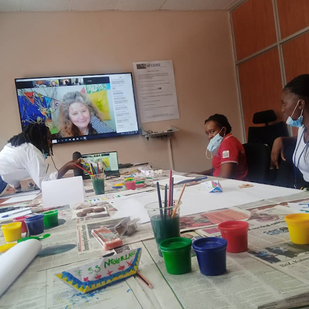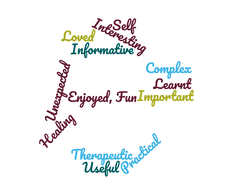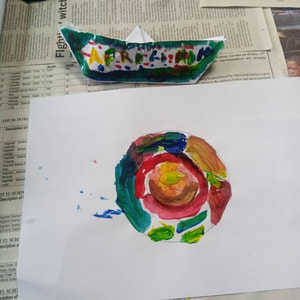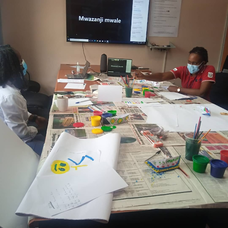ZTA goes digital; first steps in using Therapeutic Art to support children living with HIV6/23/2021 Author: Diana Mintal The workshop is ZTA’s first training programme delivered remotely and was initiated so that ZTA’s work could keep going despite the current Covid-19 restrictions, which prevented ZTA trainers travelling to Zambia. Lesley and Joanna from ZTA met with lead personnel from the Centre for Infectious Disease Research in Zambia (CIDRZ) in 2020 to discuss how the Zambia Therapeutic Art method may be incorporated into programmes for children living with HIV. This initiative is in line with ZTA’s objective to explore the effectiveness of Therapeutic Art with different client groups in Zambia. A taster workshop for health professionals and peer counsellors from CIDRZ was proposed as a first step. As travel restrictions meant this could not be done in person by ZTA trainers, an online workshop was proposed. A workshop planning group consisting of trainers from both the ZTA and Zambian based therapeutic art teams worked with CIDRZ.  The workshop comprised
It was delivered by a UK and Zambian trainer -- Liz (from Cromarty, Scotland and Mwazanji (Livingstone, Zambia) to 8 participants who linked in from 4 locations in Zambia (across Lusaka and Kasama, Northern Province) so they could each access the workshop according to local safety guidelines. Participants included members of the CIDRZ research team and HIV peer counsellors, and the Zambian ZTA coordinator. What were the outcomes of the workshop? 1. Awareness of the theory and practice of the ZTA approach The evaluation exercise showed that knowledge about Therapeutic Art increased by 50%. The created word cloud shows the keywords that were mostly used to depict their experience of using Therapeutic Art. They said: ‘I did not realise how much of myself is locked inside me but constitutes a huge part of me. It made me change how I perceive or imagine other people’s emotions.’ ‘Drawing of different diagram which had direct communication about myself.’ ‘I learnt that a lot can be learnt through art and it is a good therapeutic method.’ ‘I learnt that art is everywhere around us and emotions and thoughts can be expressed through it.’  2. The success of the remote delivery of the Therapeutic Art workshop The overall feedback was that the setup of the workshop and post-workshop discussion through a series of zoom calls with team members was effective. They said: ‘Facilitators were good in delivering the workshop’ ‘What worked well was that there was total involvement of the participants, cooperation and interactive’. ‘The facilitation was outstanding and very much involving’. ‘It was well delivered and soothing’.  And in relation to their work with children living with HIV and their families: ‘One use of therapeutic art is such an important communication with different individuals living with HIV and other family members undergoing dilemma moments in their lives’. ‘Allow caregivers and children to express their feelings in a safe environment. Allow clinical care givers to concentrate on patients and let them feel heard and important. It provides a forum for both’. ‘It would help them cope with the HIV and may help CLHIV want to come back to the clinic’.
Conclusion This workshop successfully orientated people who work with children living with HIV and their families, how the use of the Zambia Therapeutic Art method would be a valuable additional tool in the care of these very vulnerable people.
Further it showed that remote delivery of a Therapeutic Art workshop is feasible and effective in the Scotland/Zambia context.
0 Comments
Leave a Reply. |
AuthorNews from the ZTA and TAZ teams in Scotland and Zambia. Archives
June 2021
Categories |


 RSS Feed
RSS Feed